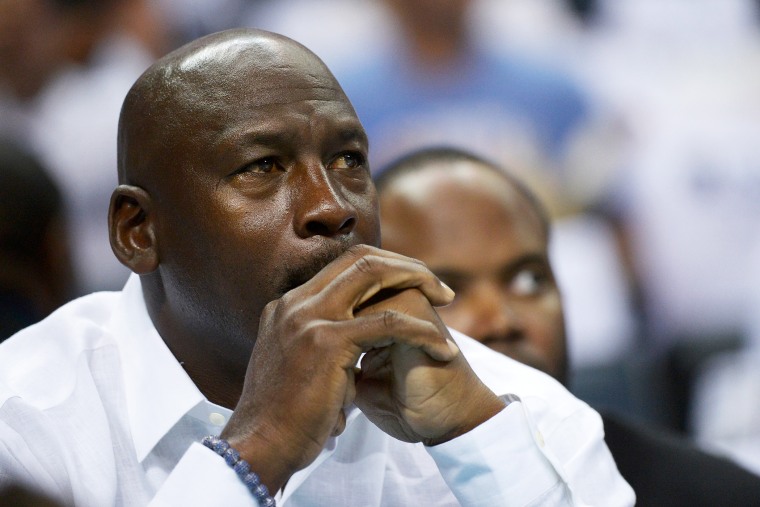Michael Jordan is widely accepted as the greatest basketball player who has ever lived, but his journey to the pinnacle of NBA success didn't come without its share of racial strife.
In a new biography called Michael Jordan: The Life, the NBA Hall of Famer reveals personal encounters as a youth growing up in North Carolina which created a deep-seeded resentment within him against his white peers.
"I considered myself racist at the time, " Jordan told author Roland Lazenby, while describing his reaction to a white female classmate who called him the N-word. Jordan says he threw a soda at the woman who called him the racial epithet.
"Basically, I was against all white people.” said Jordan.
Jordan's latest revelations have taken on added weight in the wake of Los Angeles Clippers owner Donald Sterling's controversial race-related remarks.
Sterling has been banned for life from the NBA and the league is the midst of trying to force him to sell his franchise after an audio recording of the Clippers owner leaked in which he urged his alleged girlfriend, V. Stiviano, not to bring black people to his games.
"There's no racism here. If you don't want to be... walking... into a basketball game with a certain... person, is that racism?" said Sterling.
Jordan was among the many prominent NBA voices who came forward to condemn Sterling when the scandal broke.
"I look at this from two perspectives -- as a current owner and as a former player. As an owner, I'm obviously disgusted that a fellow team owner could hold such sickening and offensive views," Jordan said in a statement.
However, for most of his career, Jordan has made a very public point of sidestepping issues of race.
In 1990, when African-American U.S. Senate candidate Harvey Gantt faced a close and contentious campaign against racially polarizing incumbent Sen. Jesse Helms in North Carolina, Jordan, a local hero, was lobbied to endorse Gantt.
Jordan famously refused to get involved in the fracas and was quoted as saying, "Republicans buy sneakers too."
According to Lazenby, Jordan's adolescence was shaped by growing up in a community under heavy influence by the Ku Klux Klan.
"I've been to North Carolina hundreds of times and enjoy it tremendously, but North Carolina was a state that had more Klan members than the rest of the Southern states combined," the author told Sports Illustrated. "As I started looking at newspapers back in this era when I was putting together [Michael's great-grandfather] Dawson Jordan's life, the Klan was like a chamber of commerce. It bought the uniforms for ball teams, it put Bibles in all the schools. It may well have ended up being a chamber of commerce if not for all the violence it was perpetrating, too. A lot of the context just wasn't possible to put in a basketball book. A lot of it ended up being cut."
Michael Jordan: The Life hit bookstores this week.
